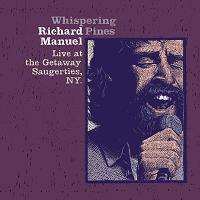
The Band was a Canadian-American rock band formed in Toronto, Ontario, in 1967. It consisted of four Canadians and one American: Rick Danko, Garth Hudson, Richard Manuel, Robbie Robertson, and Levon Helm. The Band combined elements of Americana, folk, rock, jazz, country, and R&B, influencing subsequent musicians such as Elton John, the Grateful Dead, Eric Clapton and Wilco.

Richard Clare Danko was a Canadian musician, bassist, songwriter, and singer, best known as a founding member of The Band, for which he was inducted into the Rock and Roll Hall of Fame in 1994.
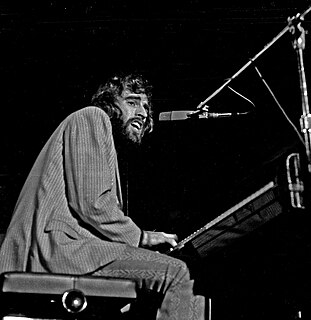
Richard George Manuel was a Canadian singer, multi-instrumentalist, and songwriter, best known as a pianist and one of three lead singers in The Band, for which he was posthumously inducted into the Rock and Roll Hall of Fame in 1994.

Eric "Garth" Hudson is a Canadian multi-instrumentalist best known as the keyboardist and occasional saxophonist for rock group the Band, for which he was inducted into the Rock and Roll Hall of Fame in 1994. He was a principal architect of the group's sound, described as "the most brilliant organist in the rock world" by Keyboard magazine. With the deaths of Richard Manuel in 1986, Rick Danko in 1999, and Levon Helm in 2012, Hudson is one of only two living original members of the Band, with the other being Robbie Robertson.

Jericho is the eighth studio album by Canadian-American rock group the Band. Coming seventeen years after their "farewell concert", it was released in 1993 and was the first album to feature the latter-day configuration of the group, as well as their first release for the Rhino subsidiary Pyramid Records.

Jubilation is the tenth and final studio album by Canadian/American rock group the Band. Recorded in the spring of 1998 in Levon Helm's home studio in Woodstock, New York, it was released on September 15, 1998. For the first time since the group reformed without guitarist and songwriter Robbie Robertson, there were more originals than covers. Songs include "Last Train to Memphis", featuring guest guitarist Eric Clapton, Garth Hudson's solo instrumental closer "French Girls", Rick Danko's "High Cotton" and the ode to Ronnie Hawkins, "White Cadillac".
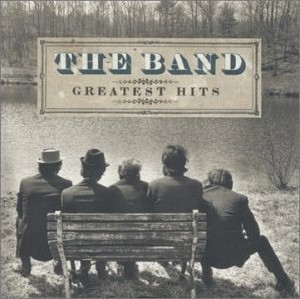
Greatest Hits is a compilation album by the Canadian-American rock group the Band. It was released in 2000 on Capitol Records. The album was released in conjunction with remastered versions of the group's first four albums. It draws very heavily from these records, with thirteen of the eighteen tracks selected from Music from Big Pink, The Band, Stage Fright and Cahoots.

To Kingdom Come: The Definitive Collection is an anthology by Canadian-American rock band the Band, released in 1989. The thirty-one tracks were mostly taken from the group's eight albums on Capitol Records. The group's better-known songs, such as "The Weight", "Up on Cripple Creek", "Chest Fever", "The Night They Drove Old Dixie Down", "The Shape I'm In", "Life Is a Carnival" and "It Makes No Difference", are all present. Rarities such as "Loving You Is Sweeter Than Ever", "Get Up Jake" and "Back to Memphis" are also present.

Across the Great Divide is a box set by Canadian-American rock group the Band. Released in 1994, it consists of two discs of songs from the Band's first seven albums, and a third disc of rarities taken from various studio sessions and live performances. The set is now out of print, having been replaced by the five-CD/one-DVD box set A Musical History that was released in September 2005.
Rick Danko is the 1977 eponymous debut by the bassist and singer for the Band. Featuring ten tracks written by Danko, usually in conjunction with lyricists Bobby Charles and Emmett Grogan, it was the first solo album by any member of the group and was Danko's only full-length solo studio album; The other two albums he released in his lifetime were live recordings.
Times Like These was Band bassist Rick Danko's final album, a posthumous release featuring tracks from a variety of sources dating from an aborted solo project in 1993 to Danko's final live performance in Ann Arbor, Michigan just days before his death.
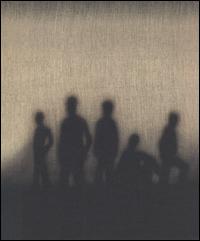
A Musical History is the second box set to anthologize Canadian-American rock group The Band. Released by Capitol Records on September 27, 2005, it features 111 tracks spread over five compact discs and one DVD. Roughly spanning the group's journey from 1961 to 1977, from their days behind Ronnie Hawkins and Bob Dylan through the departure of Robbie Robertson and the first disbanding of the group. The set includes highlights from each of the group's first seven studio albums and both major live recordings and nearly forty rare or previously unreleased performances.
Cryin' Heart Blues is a seventeen-track 2005 compilation of studio sessions and live recordings by Rick Danko, the late bassist of The Band. The album was taken from a wide variety of sources, dating from the sessions for Danko's eponymous first album through to other studio sessions recorded between about 1978 to 1988 and live recordings from 1979 and 1990.
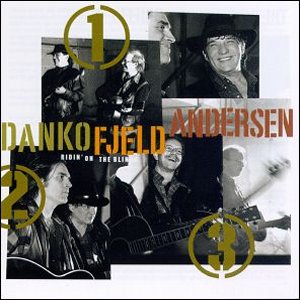
Ridin' on the Blinds was the second and final album by the folk-rock trio of Rick Danko, Jonas Fjeld and Eric Andersen. Released in 1994, it was different from its predecessor in that its focus was rootsier, influenced more by the folk leanings of the group than their rock leanings.

Endless Highway: The Music of the Band, a tribute to the Band, was released on January 30, 2007.
Lonesome Suzie is a 1968 song by The Band written and sung by Richard Manuel originally appearing on their influential debut album Music From Big Pink It was also released on Across The Great Divide, a compilation box set from 1994. Drummer Levon Helm has said that "...Lonesome Suzie was Richard's failed attempt to write a hit record." It never charted and is one of the few songs on which Manuel contributed writing, but is also recognized as one of Manuel's signature pieces. In 1970 it was released as the B-side of the French single release of "Whispering Pines".
"Sleeping" is a song by The Band, first released on their 1970 album Stage Fright. It was also released as the B-side to the "Stage Fright" single. It was co-written by Robbie Robertson and Richard Manuel. This and “Just Another Whistle Stop” are the only two songs Manuel receives credit for on the album. Music critic Barney Hoskyns rates it as "one of Richard [Manuel's] liveliest performances" and "one of The Band's most intricate arrangements." The Band never featured the song on a live album.
"When You Awake" is a song written by Robbie Robertson and Richard Manuel that was first released on The Band's 1969 self-titled album The Band. A live performance was included on the Bob Dylan and The Band live album Before the Flood.

"Whispering Pines" is a song written by Richard Manuel and Robbie Robertson that was first released by The Band on their self-titled 1969 album The Band. It was released as a single in France, backed by "Lonesome Suzie".
"The Unfaithful Servant" or "Unfaithful Servant" is a song written by Robbie Robertson that was first released by The Band on their 1969 album The Band. It was also released as the B-side of the group's "Rag Mama Rag" single. It has also appeared on several of the Band's live and compilation albums.
